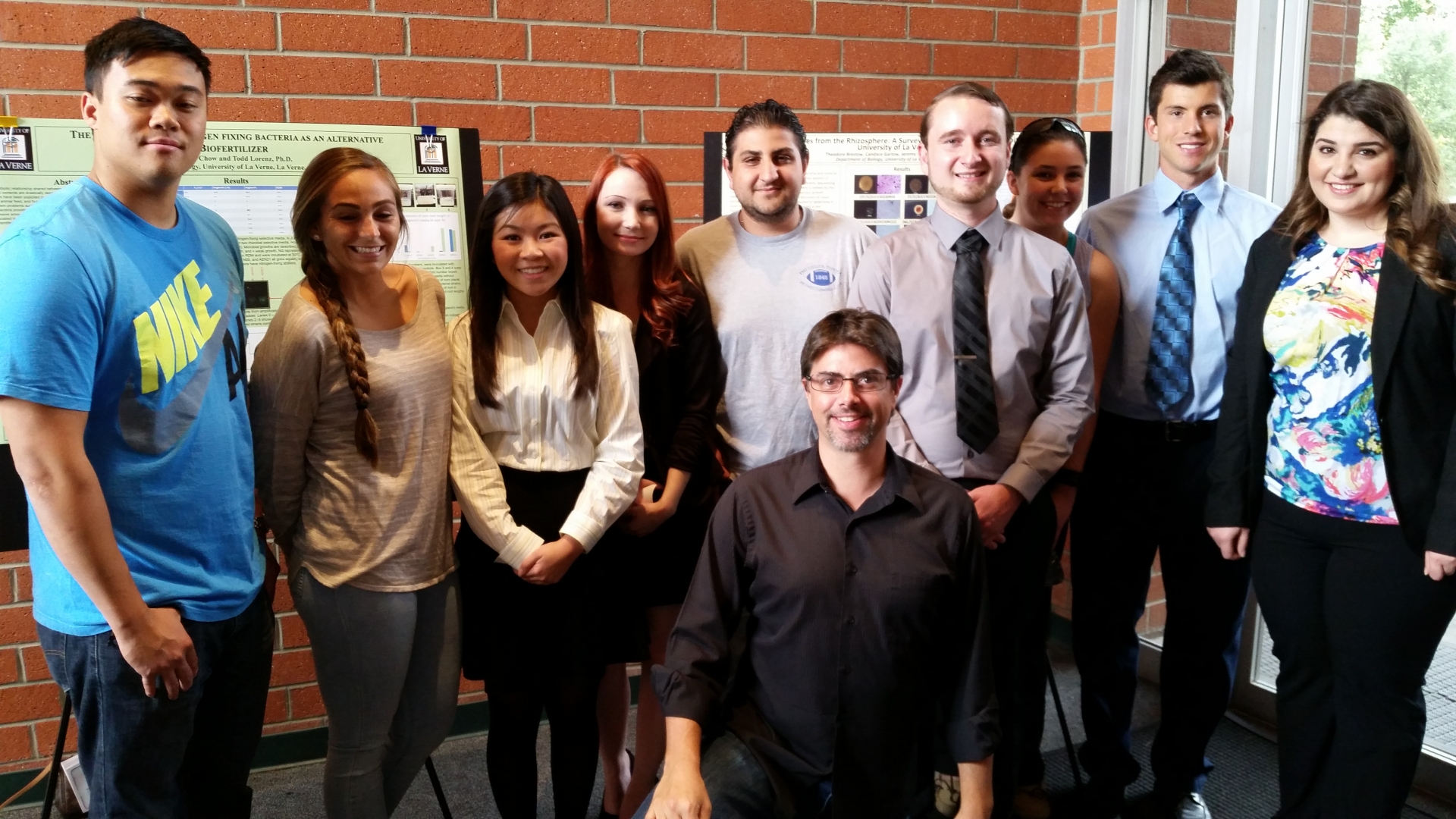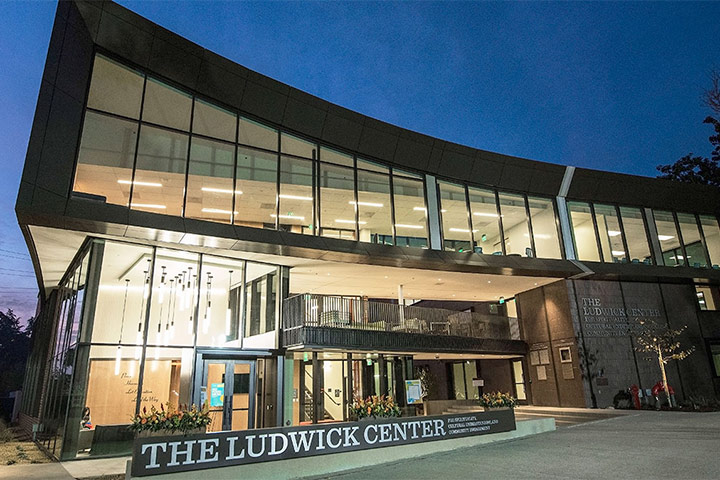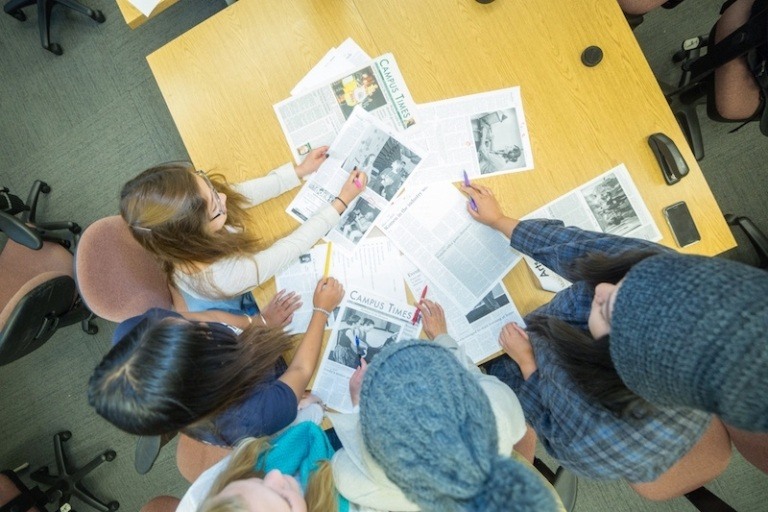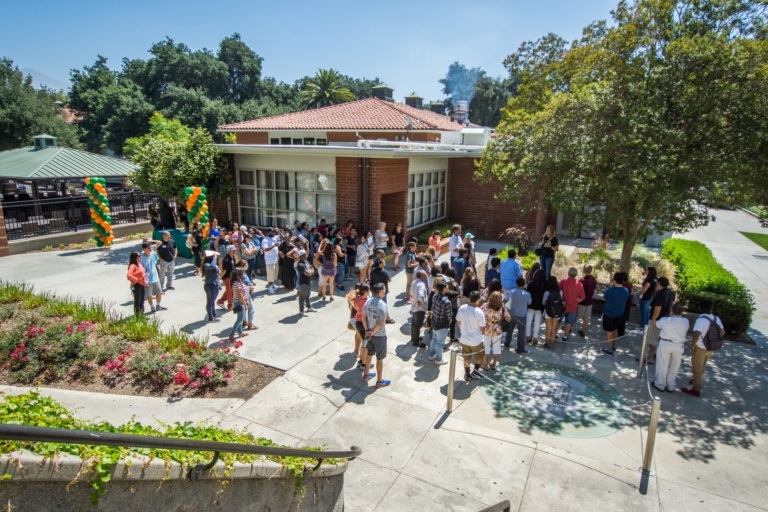La Verne Assistant Biology Professor Publishes Research on Viral Diversity

Photo: Assistant Biology Professor Todd Lorenz, center front, poses with his students at the University of La Verne.
Todd Lorenz’ research into groups of viruses – known as bacteriophage – has yielded not only a recently published study in the scientific journal eLife, but it also led to the discovery of a bacteriophage that has La Verne written all over it.
The Assistant Biology Professor says one of his students isolated a phage nicknamed “Leo 1” from soil beneath the ULV bushes on campus.
“We isolated that just recently,” Lorenz said.
The discovery is an extension of his work in the eLife published study “Whole Genome Comparison of a Large Collection of Mycobacteriophages Reveals a Continuum of Phage Genetic Diversity,” which was published April 28. The study was conducted by a consortium of universities, including thousands of undergraduate students.
Bacteriophage, or phage, replicate within bacteria, and knowing more about them and how they are related to each other can contribute to the field of medicine.
“Phage are a potential solution to the antibiotic resistance crisis as they are very specific predators of bacteria,” Lorenz said.
The authors compared genomes – complete DNA sequences – of 627 bacteriophage that infect bacterial species called Mycobacterium smegmatis.
Sequencing and analysis was performed using the Science Education Alliance Phage Hunters Advancing Genomics and Evolutionary Science (SEA-PHAGES) program out of UCLA. Lorenz, who helped develop SEA-PHAGES while teaching at UCLA, came to La Verne three years ago and continued his work.
Authors of the study determined that the phage population is in a constant state of change, and continuously acquires genes from other microorganisms and viruses.
“With a near endless supply of diverse viruses readily accessible for isolation and analyses, integrated research/education programs will continue to play substantial roles in defining the nature of the virosphere,” authors wrote.
Lorenz hopes to involve more students in studying this area of virology for future publications due to the experience they would gain in experimentation, troubleshooting experiments and real scientific inquiry.
“The University of La Verne biology department understands this is a high impact practice and has developed many inquiry based projects in their laboratory courses,” Lorenz said. “This is one of the things that made me think I was a good fit in the University of La Verne biology department.”


